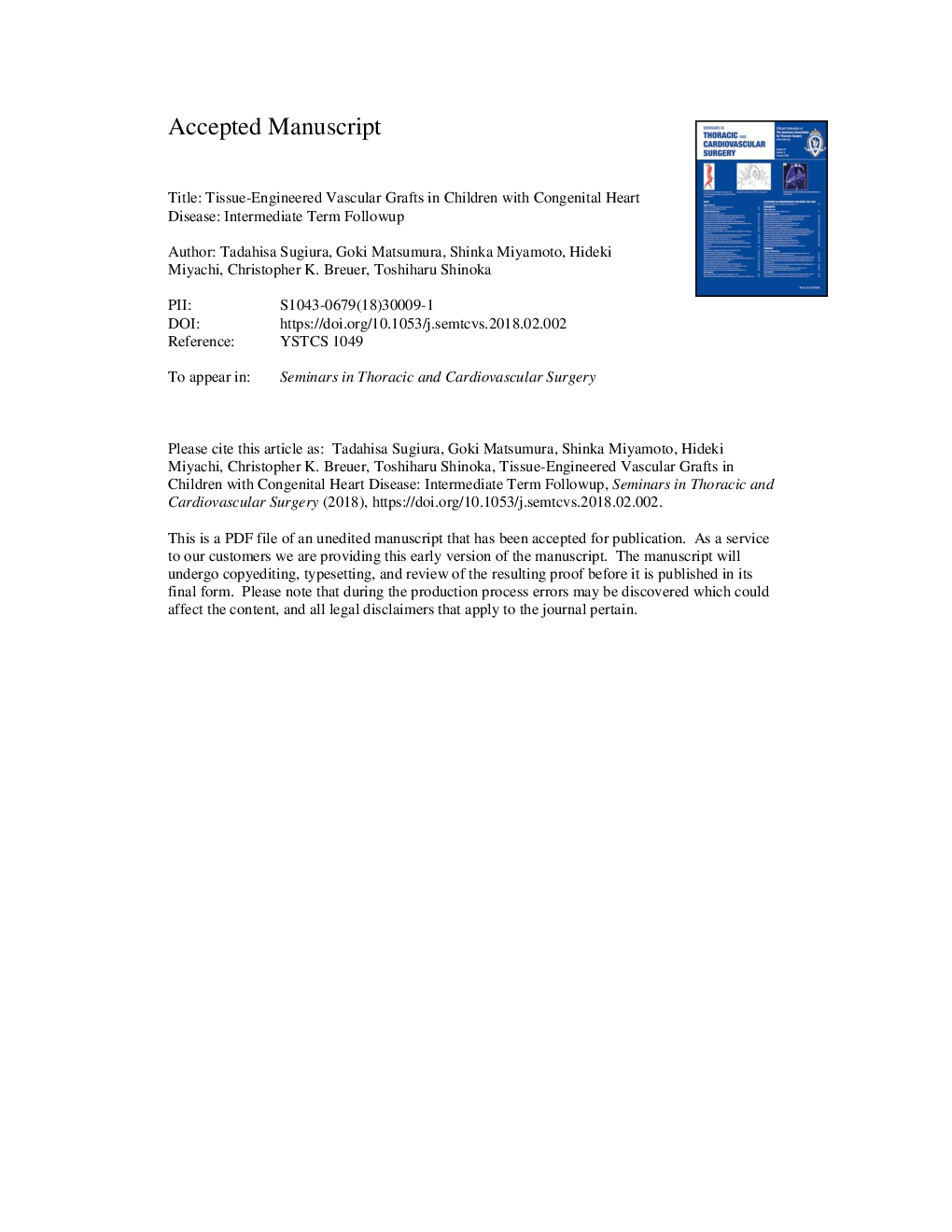| Article ID | Journal | Published Year | Pages | File Type |
|---|---|---|---|---|
| 8679034 | Seminars in Thoracic and Cardiovascular Surgery | 2018 | 23 Pages |
Abstract
Tissue engineering holds great promise for the advancement of cardiovascular surgery as well as other medical fields. Tissue-engineered vascular grafts have the ability to grow and remodel and could therefore make great advances for pediatric cardiovascular surgery. In 2001, we began a human clinical trial evaluating these grafts in patients with a univentricular physiology. Herein, we report the long-term results of patients who underwent implantation of tissue-engineered vascular grafts as extracardiac total cavopulmonary conduits. Tissue-engineered vascular grafts seeded with autologous bone marrow mononuclear cells were implanted in 25 patients with univentricular physiology. The graft is composed of a woven fabric of poly-l-lactide acid or polyglycolic acid and a 50:50 poly (l-lactic-co-ε-caprolactone) copolymer. Patients were followed up with postoperatively in a multidisciplinary clinic. Median patient age at operation was 5.5 years and the mean follow-up period was 11.1 years. There was no graft-related mortality during the follow-up period. There was also no evidence of aneurysmal formation, graft rupture, graft infection, or calcification. Seven (28%) patients had asymptomatic graft stenosis and underwent successful balloon angioplasty. Stenosis is the primary complication of the tissue-engineered vascular graft. Avoidance of anticoagulation therapy would improve patients' quality of life. Tissue-engineered vascular grafts have feasibility in pediatric cardiovascular surgery.
Related Topics
Health Sciences
Medicine and Dentistry
Cardiology and Cardiovascular Medicine
Authors
Tadahisa MD, PhD, Goki MD, PhD, Shinka MD, PhD, Hideki MD, PhD, Christopher K. MD, Toshiharu MD, PhD,
